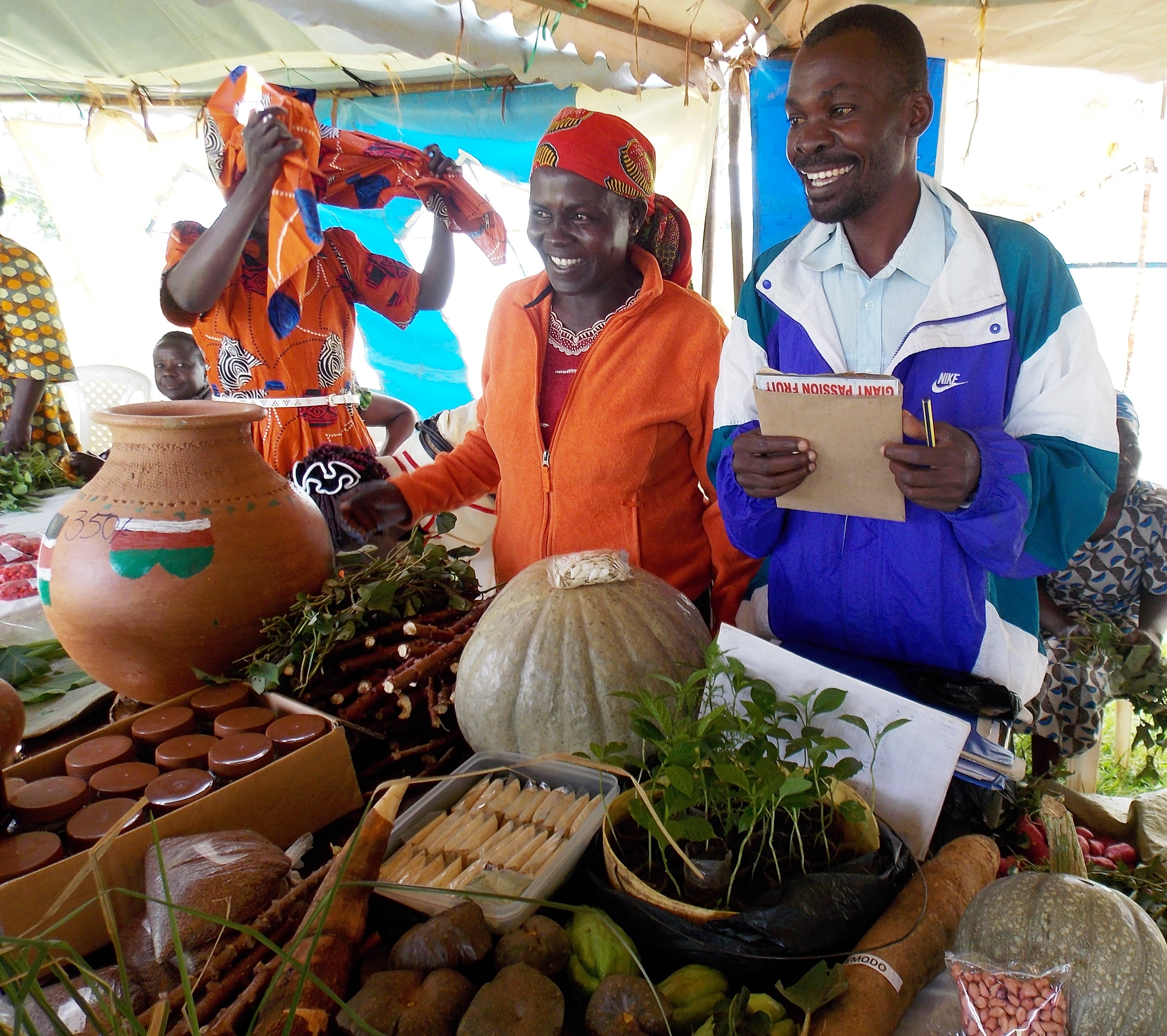

Durante el proyecto se organizaron dos ferias de alimentos tradicionales en el Centro de Formación Agrícola de Busia. Las ferias aumentaron la participación de la comunidad en la gestión de la biodiversidad al cambiar la mentalidad y la actitud de la gente hacia los alimentos locales. Durante las ferias, los agricultores recogieron y compitieron por la exposición más completa de partes de plantas, semillas, muestras de frutas y alimentos tradicionales. También fue una ocasión para que los agricultores compartieran información relacionada con la biodiversidad y conocimientos tradicionales asociados, así como material de siembra y semillas, al tiempo que permitió al equipo de investigación localizar a nuevos custodios de la biodiversidad. Se considera que las ferias han contribuido a animar a consumidores, escuelas, jóvenes, responsables políticos y comunidades agrícolas a hacer un uso continuado de los cultivos y variedades locales, contribuyendo así a su conservación.
Es necesario identificar defensores dentro de la comunidad y a nivel político para garantizar que el mensaje se transmite y apoya adecuadamente. La organización de una feria de alimentos tradicionales también requiere importantes dotes organizativas, por lo que debe reflexionarse sobre la asignación de funciones y responsabilidades a las distintas partes de la organización.
- Se deben buscar fondos suficientes, ya sea mediante financiación directa o en especie (ayuda para organizar la feria), ya que los actos pueden resultar costosos.
- Publicidad: hay que dedicar tiempo suficiente a la publicidad generalizada antes del acontecimiento. Utilice todos los medios que se le ocurran para difundir el mensaje. Por ejemplo, grupos religiosos, radio, mensajes SMS, Whattsapp, redes sociales y correo electrónico.
- Deja espacio para la competencia. En el evento de Busia, siete grupos de agricultores compitieron entre sí por la mejor presentación y variedad de alimentos tradicionales, pero también fueron juzgados en función de la higiene y el valor añadido. Los concursos de cocina también son un éxito y pueden ser una buena forma de atraer al público.